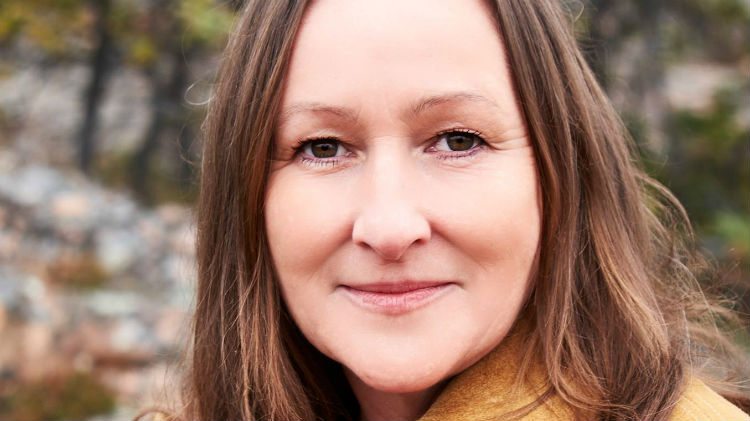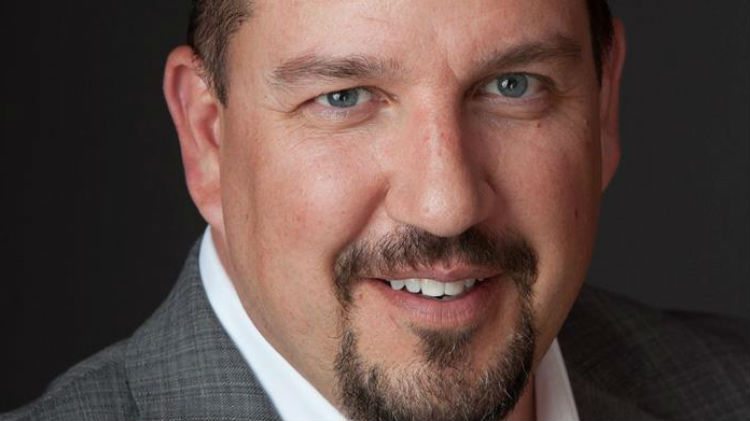Moose FM sat down with each candidate ahead of the territorial election day on November 23, 2015. Here’s what Range Lake’s candidates told us.
More: Candidate Q&As from other districts
Caroline Cochrane-Johnson

Tell us about yourself. What’s your background and why do you feel qualified for the job?
My family moved to Yellowknife in 1963. I’m a long-term Yellowknifer – I plan on my retiring here, my children are from here. I was born into a mineral exploration family – my brother still works in that industry here in Yellowknife. I have a strong business and financial management background. I also have a degree in social work, and I’ve focused on that field in the last 20 years. I prefer to work in community-based non-profits, because I believe that’s where the most need and the most hope is. Currently I’m the CEO of the Centre for Northern Families. I was hired to develop their sustainability plan four years ago because they were seriously in debt. I did a comprehensive strategic plan, we followed it and we are now financially stable and sustainable for the long-term future.
Why am I running? Like most of us, I’m concerned with the high cost of living, our unstable economy, the implementation of Devolution and land claim settlements, the lack of community resources and climate change. I bring a strong background in finance and business management, policy development, and a social knowledge of social issues and current best practices. The government needs more transparency and constituents need more of a say in government decisions. I’ve spent the past 20 years asking, listening and advocating for people’s concerns. Once elected, I will ask, listen and act on what people within my riding and Yellowknife want.
Asking, listening, and acting. Which – or all – of those three do you not believe constituents are receiving right now?
All of the above. There’s lots of research sitting on government shelves, collecting dust. People have been asked over and over what they want and given answers. Then I find the government just does what they want.
What about the MLA, though, Daryl Dolynny, whom you’re standing against? Are you saying that he is not listening?
I’m not willing to say anything bad against any people running for MLA. I’m taking a Trudeau kind of stance.
Well, obviously, the cabinet members are running for re-election. In suggesting the government hasn’t listened, you already are saying bad things about a whole heap of people who are standing for MLA. When you say they haven’t listened, what would you do differently that would be a clear and visible change?
A lot of people talk about consensus government not working. In theory, it should work. It’s not about what I want, as an MLA. It’s about what people in my riding want. You need to actively solicit those opinions – knock on doors, develop Facebook pages, sit in coffee shops, live in the riding.
Can you give me an example of a topic or an area where you feel as though the government did not do enough to hear about what people had to say?
In all issues. It’s really hard to pick one issue. I come from a Metis culture and within that we think more inclusiveness. I think the government is falling down within sustainable economy. A paper released in March this year talked about sustainable environments, renewable resources, tourism, manufacturing, sustainable activities within their communities – and yet we’re still not working on it. Social advocates have been calling out for over 20 years – ask us for the answers, the solutions. The government has let us down through underfunding and committees where we’re not even represented. Within the environment, we know climate change is happening yet we’ve been ignoring since before I went to university, over 30 years ago.
On that topic, you place a greater emphasis on climate change in your literature than almost any other candidate. It’s prominent. Are you prepared to commit to placing the environment first, ahead of economic development?
I’m not willing to commit to releasing anything above the other. If you want to take care of the environment, then the economy and people suffer. If you only take care of the economy, the people and environment suffer. All are intertwined. All must take priority and be considered in every decision the government makes.
So how, for example, would you deal with mineral exploration and oil and gas exploration? What specific changes would you make to government policy?
Mineral exploration has for a long time been the backbone of the economy. I would be the last person to say we need to stop it. We do, though, need to look at cleaner alternatives and be sure another Giant Mine doesn’t happen in future. We need to really enforce our policies around management and environmental care.
On health and education – there are a lot of social issues facing the NWT. What are your key priorities in those fields if elected?
In all honesty, the GNWT is looking at a deficit budget within the next few years. Everyone would love extra funding. I’m not willing to promise that. We need to start to prioritize. I would look at mostly the most vulnerable populations: our youth, our disabled, our homeless people. Then we can look at other sectors. We need to look at social enterprises etc to bring in more funding toward those causes and seriously listen to people who work within the field and have lived experiences – act on what they’re saying would help them.
Let’s look at something specific, say early childhood education, or Aurora College. Where should the immediate focus be when it comes to educating NWT residents?
If we’re comparing early childhood and college or university, I would choose early childhood education. Zero to six are our most critical years. Within junior kindergarten, they’re considering cutting the funding for disabilities classroom assistants. In my opinion, you don’t take from one vulnerable population to give to another. Junior kindergarten is putting children in another year of structured school. K-12 has a different learning curriculum and style. Teachers working within the ECE field, what people consider as daycares, are more play-based. It’s a totally different spectrum. The children are losing out on an extra year of development skills they need. The daycares are going to close. There’s lots of need for infant care. We all struggle, within daycares, to keep the older children in. Now, with more children going to junior kindergarten, you might find that more daycares close.
Your platform contains quite a lot on tourism and culture. Explain to me some of the specific policy initiatives you’d like to put in place to grow those industries.
With 25,000 visitors through the centre here last year, that’s huge. I’ve heard tourists saying there’s not a lot to do in Yellowknife – you can only look at the Northern Lights for so long. Tourism can provide a viable economic structure for all communities. If we look at land-based tourism, helping Aboriginal communities develop those to take people hunting, fishing, dog sledding or walking in snowshoes. If we can promote the arts. Those things will bring in sustainable tourism. The government needs to market and promote the wonderful things we have in the North.
The government has sent trade missions to Asia, established a marketing presence in Germany, updated Korean and Australian websites to attract tourism. What more should they do?
Those are huge steps. I’m not sure we need to send elected people over to those countries. We can do a lot more with social media that is more cost-effective. We’re looking at a deficit budget so we need to tighten up. It’s actually developing a platform that says ‘this is what we have’, then developing skills within our communities to offer it.
Let’s look specifically at Range Lake. What are you offering constituents that is different to what the incumbent offers?
I live in Range Lake. I’m from Yellowknife. I will retire in Range Lake, it is my home. For the past 20 years I’ve worked directly with people. I will not only knock on your door once every four years – I’ll be knocking on doors constantly. I want to bring Range Lake together as more of a community. When big issues come out, I’ll throw them out to the people that live in Range Lake, take their feedback and act on what they want. I’ll be knocking on your door at least every year. You will see me. I’m your neighbour.
Finally, what else did you want to mention?
It’s time we listen. It’s time the people have a say, that we have a true consensus government. When elected, I will do my best to be that.
Daryl Dolynny

Looking back on four years as the MLA for Range Lake, what did you achieve for your constituents in that time?
Four years go by very quickly. The first year was a huge learning curve for someone coming from the business side. My work ethic – being a farm boy back from Alberta – you get down to basics and learn it. I’ve been on various standing committees – social programs and government operations – looking at a lot of legislation benefiting a lot of Northerners. I’ve provided a lot of amendments to these legislations and I’m very proud of many of them. Other than that, learning the language of government and the tools out there to help people – a part of my job is to work with constituents on their issues like students, housing, not having access to various programs. By default, as an MLA, you’re the bridge. I’m proud of being able to resolve many of these issues. The office is always busy. My job is to be that sherpa, bring them through to the top of that mountain. It was a very rewarding and quick four years and I’m very proud of it.
You often set yourself up as a government watchdog. At the same time, what ideas do you feel you brought to the legislature?
Anyone who knows me knows I’m very analytical by design. Watching government processes is natural for me. I do take pride in being able to keep accountability and transparency. It’s important for me to make sure we’re evaluating all the things we do and offer for the taxpayer. The third element is protecting the public purse, watching our money. It’s a forte I’ve inherited through genes, I guess. It’s not the sexy part of government but it is a much-needed aspect and people appreciate there’s someone out there watching those nickels and dimes. It’s almost like an ombudsman role, to a certain degree. MLAs are de facto ombudsmen.
But you have to come armed with ideas. If you were going to highlight a couple of solutions, what have you had?
There have been a lot of healthcare initiatives I tried to champion through things like the catastrophic drug program, better coverage for seniors in terms of access to health initiatives. I tried to initiate many housing options out there. I’ve been very analytic in terms of where we’re able to better target spending. One aspect I appreciate is we embarked on a very aggressive pathway to get a lot of strategies like the economic opportunities strategy. What I find to be a barrier is where do we get the money, and where do we put the money to get that outcome? When it comes to cost of living, we’ve got a better role to look at our cost of living through our power and electricity. I believe the cost of doing business, and power, is well out of our means. We’re saddled with a huge legacies of old generators that will need replacing. The taxpayer’s not going to have the funds to make that investment. We have to start stretching outside the thinking in terms of lowering the cost of living through other investments and partnerships. We’ve got to think differently, especially in our energy sector.
I want to talk about your slightly post-apocalyptic campaign slogan, ‘Ensuring Our Future’. Why might our future be in jeopardy in the hands of other candidates?
I don’t think it will be. I had a chance to look at all their platforms and some great candidates have come forward. ‘Ensuring Our Future’ comes from the fact that people know what they’re getting. They’ve seen what I’ve been able to do. They know the type of person they’ll get in terms of being a watchdog, watching their money and being as transparent and accountable as possible. Post-apocalyptic is good… we are living in a post-Devolution environment if we can use that term – we’re more province-like than ever before and that comes with a lot more responsibility, which requires experience.
You’ve broken down your priorities into different areas: the word ‘more’ turns up a dozen or so times in these priorities, but it’s hard to find the word ‘less’. How do we fund everything you want to see happen?
There’s no denying that we’re living in a tight fiscal environment and it’ll require some very crafty calculation and financial acumen to bring those dollars to the areas where we need to invest. We’ve got to look at every facet in terms of our revenue side.
And you want to increase the expense – that’s the warning sign with the word ‘more’. How do you fix that?
You’ve got to find the efficiencies first then you’ll have more money to spend where you need it most. Growing our population is going to be paramount – every man, woman and child to our bottom line is just over $29,400. We’ve got to make sure the growth strategy is working, and we need to be more visionary in terms of making sure we can grow our population. That being said, there’s other potentials: we have a funding formula with Ottawa that’s in dire need of being looked at. We have an opportunity in 2018 to take a look at it – some of the matrices and measurements used to decide that money. We can find fiscal movement, or leeway to deal with the so-called ‘mores’ in anyone’s campaign. It’s a balance.
When you say efficiencies, what do you have in mind?
Everything we do in government has to be measured in terms of what you’re doing and whether you’re getting maximum benefit. We do accountability plans. We’ve got to find those efficiencies – if deficits are occurring in certain departments, why? If there are surpluses, how do we redirect them? If we do a full analysis – and I think we’ll have to, we’re looking down a very meagre fiscal outlook – I think there’ll be some very tough decision-making until such time as our ability within the resource sector can rebound. It’ll be a tight couple of first years, I’m guessing.
You have a number of priorities – what are the headlines if you’re re-elected?
What we’re hearing, time and again: people are really concerned about our economy. There’s a lot of doubt out there. It worries me that we don’t have that economic confidence and it’s something we’ll have to work on. The second thing is our cost of living. We can look at that from different goggles but power and electricity comes up time and time again. There is huge opportunity in our power generation, distribution and transmission – we don’t have deep enough pockets to do that so we’ll have to look at partnerships. We can recapture heat loss at the stovepipe, as I call it – there are a whole bunch of opportunities there. And what investments are we going to do into renewables to offset costs? I’m up for the challenge, I’m well-versed in it, I’ve read every report out there and I’m ready to hit the ground running to push that file forward. We need to be open to ideas.
The Premier of the NWT is running for re-election. He’s made noises that he wants to remain in that job. Is it time for a change?
I’ve been asked this a couple of times. I think he did a phenomenal job leading us through the Devolution file. The ideology of a two-term premier has come up for discussion. Whoever’s elected will have to navigate through that system: who would that leader be? Who would best navigate us through the tough times ahead? If Mr McLeod seems to be that person if he does get re-elected, all power to him. It’s too early to say but I want to give him total kudos for the Devolution file.
Would you ever have any ambition in the direction of cabinet, or beyond?
I’m a first-term MLA seeking a second term. Other MLAs are in the hunt that are multiple-term MLAs. If the opportunity presents itself I would definitely take a look at it, only if I have that type of support. First things first, we have to deal with the election and make sure the voters are satisfied that they got the right person in there.
Is there anything left that you’d like to highlight?
We have a good suite of candidates out there in every riding. It’s a tough decision for the voters. I can only go based on what I’ve done with this community for the last 20-some years, both in my healthcare professional capacity and working as chair and president of the Yellowknife Community Foundation. People know who I am, what I’ve done and who I represent. It takes a lot of work to do this job and it’s very humbling, but very rewarding. This has been probably the most rewarding four years of my professional life. If people see they’ve got good value for money for their vote, I hope I can get them for a second time and I’d love to continue that work for them.





